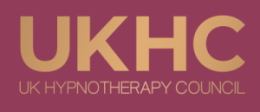One morning I received a flustered email from a member asking for assistance. One of her clients had got into trouble with the police, and in compiling her defence case wished to rely on the notes taken by her hypnotherapist to evidence an emotional issue was pre-existing at the time of the alleged crime. Her client had also asked to call her as a witness, wished for her to make a statement, and lots of other difficult things that can happen when we get embroiled in the dramas of our clients.
I clarified for the hypnotherapist that she was not obliged to be a witness or give evidence unless compelled by the court, but pursuant to a proper request, must give her client copies of all notes and documents held in respect of her, and then her client could use them for whatever purpose she wished.
And that was when the bomb dropped.
Our member hypnotherapist sent me copies of the notes she had taken over the duration of some seven sessions with her client. They totalled perhaps a page and a half of a lined notebook, longhand, in pencil, sometimes just a few words per session, with various doodles, half-written words, un-dated, and nothing to identify her client. No intake form, no check for contraindications, no history, no treatment plan, no progress analysis, no homework, no follow-up, nothing.
There is huge variance among hypnotherapists’ views as to what constitutes adequate record keeping. Some keep highly detailed, extensive, and thorough notes; others keep the bare minimum. In the case of this particular member, it was fairly clear she had fallen outside of the Code of Conduct and Ethics in several areas, and we eventually had a lengthy and good-natured discussion about how to bring her client record keeping in line with the Code, and to best serve her clients, and protect herself from issues like this one arising again in the future.
Detailed provision about record keeping and acting in your client’s best interests can be found in the Professional Hypnotherapy Network’s Code of Conduct and Ethics, which can be found here [link to CCE], in particular, sections 1 and 17.
Some questions to ask yourself are:
~ are your notes kept in accordance with the General Data Protection Register?
~ do your notes take a thorough history relevant to your client’s presenting issue, so you can accurately select appropriate and evidence based interventions?
~ did you ask your client and make notes regarding any contraindications to hypnosis? Did you record permission from the client’s GP if that were necessary?
~ would your notes be sufficient and legible if you needed to collaborate with another professional person or agency?
~ if any unorthodox issues arise or unusual approaches are taken pursuant to the client’s request, do you make note of that particular circumstance, and ask your client to sign it?
~ do you review your client notes and adjust your intervention plan as appropriate?
~ do you record any homework you set, and your client’s compliance, feedback, and progress?
~ do your notes record your thoughts and responsiveness to keeping the client’s best interests paramount throughout the duration of your work together?
The Professional Hypnotherapy Network aims to closely support our members to provide the best hypnotherapy services possible to your clients. If you have any questions about adequate record keeping, or ethical issues that arise in your practice, do feel free to get in touch.
Wishing you success,
Lucy Hyde – PHN Member

